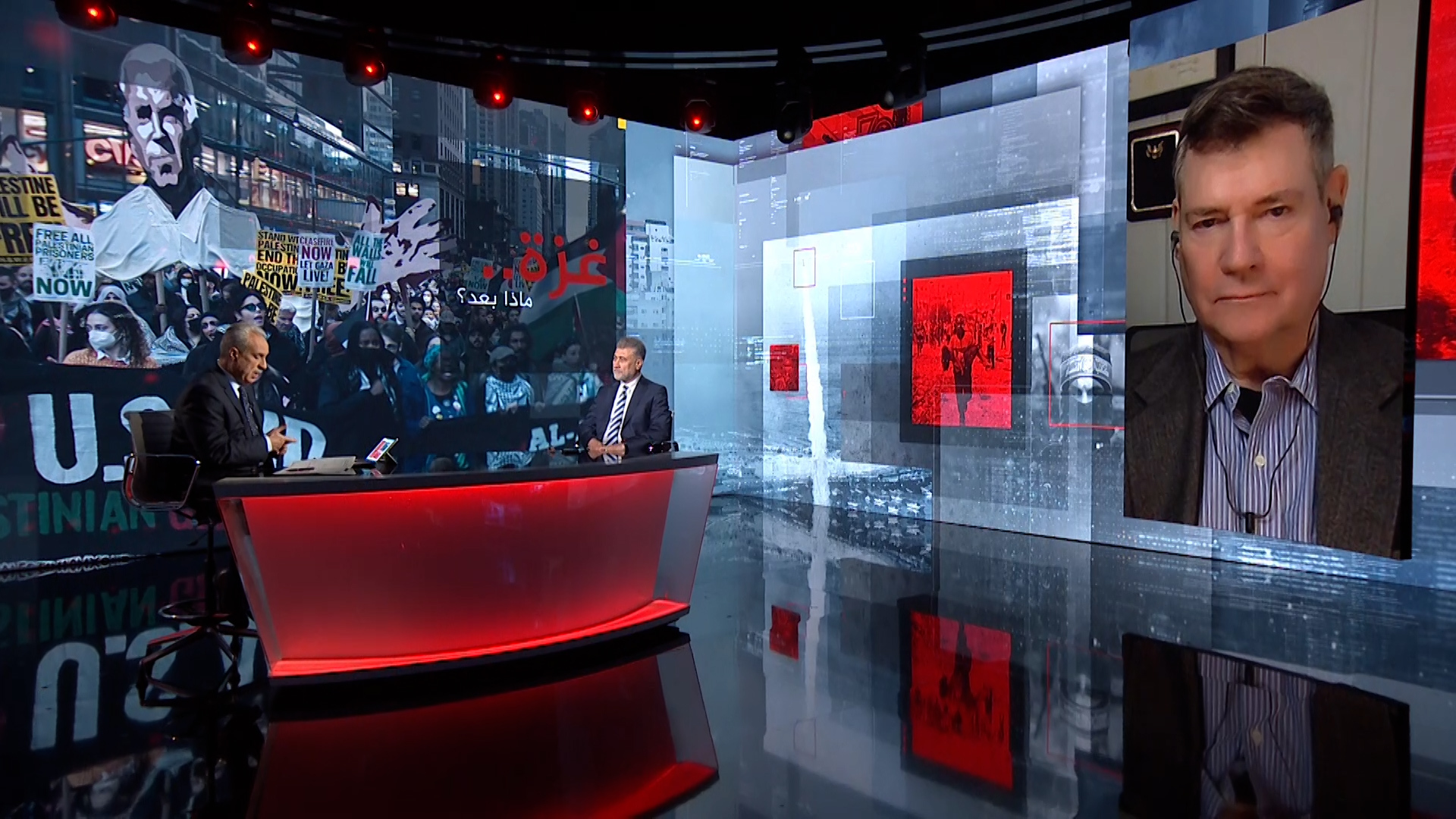play videoplay video
Video duration: 24 minutes 48 seconds 24:48
Experts say that allowing the United States of America to pass a resolution in the UN Security Council requiring a halt to the fighting in the Gaza Strip represents an important step towards transforming Washington’s position on the Israeli war, but it will not be implemented, and it does not mean the end of American support for Israel in general.
The United States’ abstention from voting on the resolution approved by the Security Council on Monday, and its failure to use its veto power, represented a precedent in the American position on the war, despite its officials confirming that it “does not mean a shift in its policy.”
A small and important step
Aside from Washington's assertion that there is no shift in its policy, the senior researcher at the Al Jazeera Center for Studies, Dr. Liqaa Makki, believes that Washington's permission to pass the Security Council resolution "represents an important and small step, but at the same time it can be built upon, despite the mines it entails."
During his participation in the program “Gaza... What Next?”, Makki said that the United States - by talking about the non-binding nature of the resolution - wanted to empty it of its value because it was not a partner in it, in addition to seeking to exploit it in the file of negotiations related to prisoners.
The same opinion was held by former American diplomat Charles Dunn, who said that what happened represents a major American political shift, and that it is a message to both sides of the war that they must reach an agreement.
While he acknowledged that the step does not represent a major victory for the Palestinian side, Dan believes that it "represents a small victory and gives an important indication that American patience with Israel is beginning to run out."
Not only that, the decision will also have major repercussions on the American interior, which is divided due to the shift of many to support the humanitarian needs of the Palestinians, and also on the Israeli interior, which views Washington’s political positions with great interest, as Dan says.
Accordingly, Israeli Prime Minister Benjamin Netanyahu must deal with caution with this small change because it may be a prelude to a larger change that may lead to his removal from office, because Washington has deep and strong connections with Israeli politicians, according to Makki, who says that the United States “ She wanted to deliver a message to Netanyahu that he must submit to what she wants in the war and after it, in line with American interests, otherwise someone else will come to carry out the mission.”
An ambiguous decision
Despite Netanyahu’s strong response to the American position, which was to cancel the visit of an Israeli delegation that was scheduled to Washington in order to discuss the military operation that Israel wants to launch in Rafah, the whole matter may not reflect the Israeli position on the Security Council resolution, which is generally in favor of Israel. In Makki's opinion.
From Makki's point of view, Netanyahu only tried to convey a message to Washington that it should not have gone ahead with this step without consulting him on the one hand, and he sought to please the extremist side in his government on the other hand.
But if we move away from these declared debates, the overall decision - in Makki’s opinion - is in Israel’s favor because it stipulates the release of all prisoners without conditions, and does not stipulate the withdrawal of Israeli forces from the Gaza Strip or the return of the displaced to their areas. That is, it represents a complete victory for Israel from The practical aspect, he said.
Therefore - Makki adds - Netanyahu may resort to an agreement with Washington later to commit to stopping the fighting during the remaining two weeks of the month of Ramadan, as stipulated in the resolution, but after Hamas adheres to the clause of releasing the prisoners without conditions.
Here the mines in this resolution appear, “because it achieves for Israel everything it wants and does not achieve for the resistance anything of what it wants,” in the opinion of Makki, who believes that the Islamic Resistance Movement (Hamas) “will never accept the implementation of the resolution because it undermines all the negotiations that took place during the period.” past".
However, the former American diplomat believes that the latest American position is unusual during this war, and “means the existence of new conditions for the American-Israeli relationship,” in his opinion.
It is true that the position on the ground will not change, as Dan says, but the current position “indicates the existence of a new conviction among the Americans regarding what is happening in Gaza, a conviction that leads to Israel having to review the conduct of the war, especially with regard to the city of Rafah in the south of the Gaza Strip, and also with regard to sales.” Weapons and their use in Gaza.
While stressing that Washington has not largely abandoned Israel, Dan believes that the United States is “somewhat angry at the rate of rejection it receives from Netanyahu, which prompted it to take this position, especially with the significant decline in Biden’s popularity even within the ranks of the Democrats.”
Regarding Netanyahu’s response to the American decision, Dan said that the Israeli Prime Minister continues to create battles with Washington for the sake of his own interests, expressing his belief that the Biden administration “will take a position regarding this behavior.”
Finally, Makki said that the decision “represents a small beginning, but it may grow, because Israel’s power is derived from America, which requires Netanyahu to take Washington’s anger into consideration because he is in a state of war and needs its military and political support.”
Source: Al Jazeera

